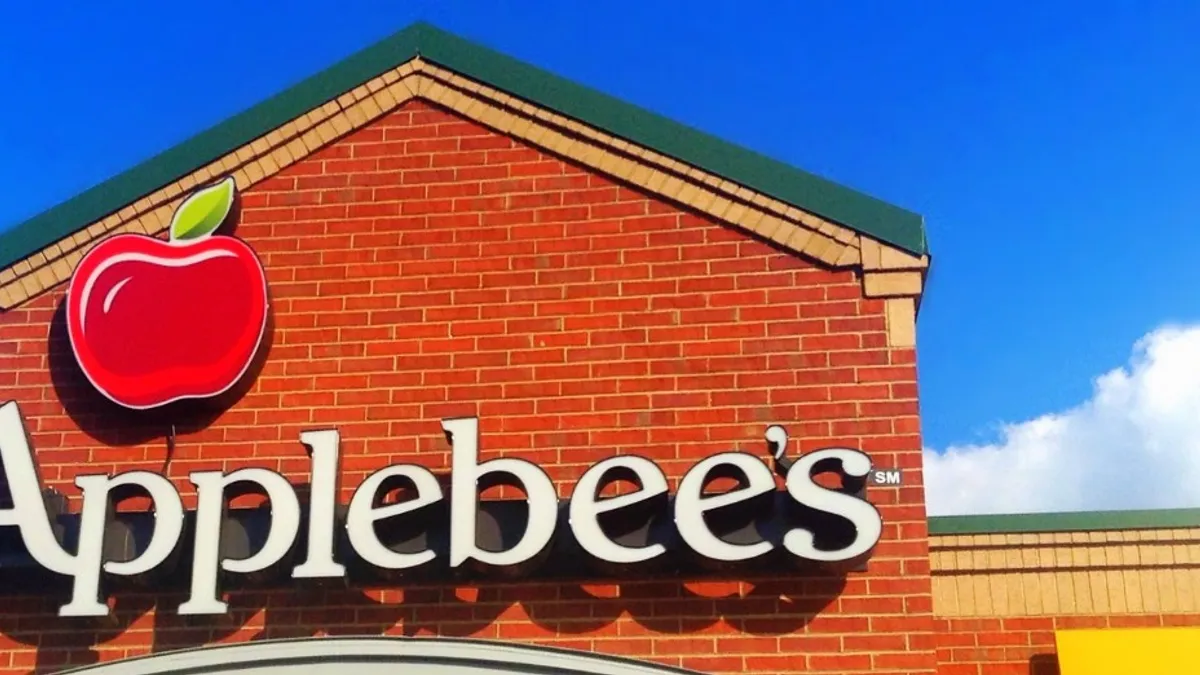Dive Brief:
- Applebee's largest franchisee, Flynn Restaurant Group, is testing the removal of delivery in three markets. Flynn operates 400 Applebee's restaurants, according to Restaurant Business.
- The restaurants that have canceled delivery have experienced faster growth in its dine-in and carside-to-go businesses.
- CEO Greg Flynn told the publication that the service isn't worth the operational disruption to the in-house business since it’s not margin-neutral.
Dive Insight:
This test comes less than 10 months after Applebee's announced its national partnership with DoorDash. The decision doesn’t indicate a vote of no-confidence in the delivery channel, however – Flynn believes delivery can well position restaurants to take away business from grocers. But he also said it has been disruptive to the dine-in operations. Such disruption may be unique to casual dining and could explain why Flynn Restaurant Group isn't undergoing the same test in its Taco Bell restaurants, which generates far less dine-in traffic.
As Restaurant Business outlines, the decision also shows that restaurant brands are starting to gain more leverage with their delivery agreements. Though incrementality is certainly a positive attribute of delivery, profitability is more so. But profitability has been elusive. Because of this, some agreements have started to shift, including McDonald's renegotiating its terms with Uber Eats to entail a lower take rate.
Applebee's parent company Dine Brands seemed to recognize these risks when it filed its delivery 2018 earnings filed with the SEC. It states: "Our delivery initiatives and use of third-party delivery vendors subjects us and our franchisees to a variety of risks related to the delivery of our products by third parties and may not generate expected returns … Our delivery initiatives also introduce new operating procedures to our and our franchisees' restaurants, which could adversely affect the business, brands and the experience of our guests."
What's particularly interesting about this test, however, is that the company — for the most part — has yielded success with delivery thus far. During its Q3 2018 earnings call, for example, Applebee's President John Cywinski said no brand is better positioned to capitalize on off-premise demand. Off-premise, bolstered by delivery, grew by nearly 40% during that quarter.
Delivery in general has provided a bit of a boost to the otherwise stagnant casual dining segment within the past year. If disruption is one of Flynn Restaurant Group's biggest concerns, perhaps exploring a ghost kitchen would help maintain operational efficiencies. This is exactly why chains like Chick-fil-A and Famous Dave's are testing such spaces.
That Flynn would be willing to cancel delivery in just a handful of its restaurants is proof that delivery is not a one-size-fits-all solution. Success can vary from brand to brand, segment to segment and market to market. It also underscores how early the industry still is in fully knowing delivery's potential and whether or not it's been overstated. Companies will have to spend a lot of time and resources trying to figure out their own delivery sweet spot, if one even exists.













